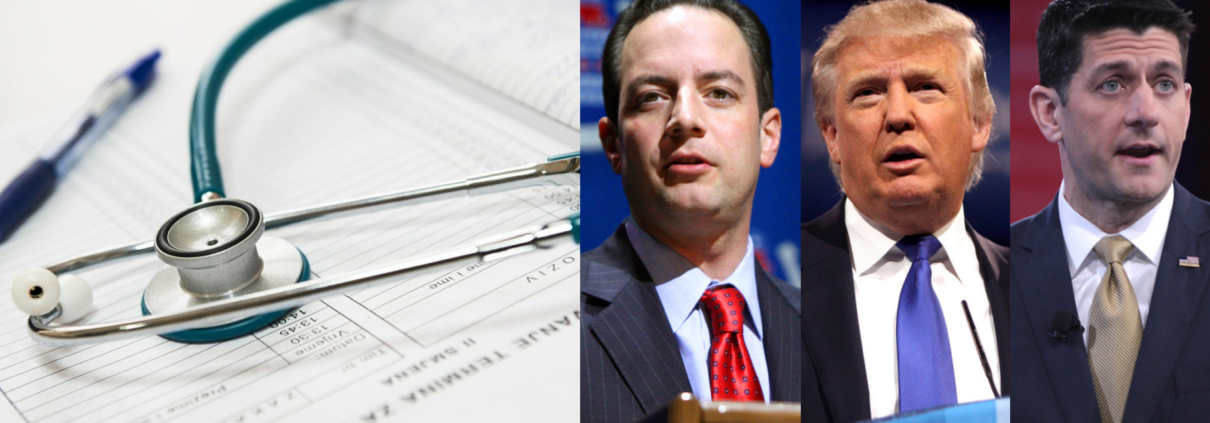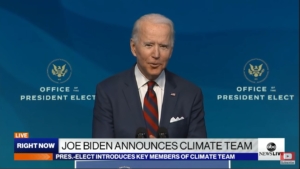What’s on TAP for Healthcare and Tax Reform?
Here’s What You Need to Know
As Donald Trump is sworn into office tomorrow, eyes turn to what key industries can expect in his Administration. As part of The Administration Project (TAP), Delve has been analyzing and assessing the incoming administration’s personnel choices and policy cues to determine just that.
This week, we released the next two summaries of our insights:
- Healthcare Issues Under The Radar: While most of the press and onlookers tracking healthcare policy under the Trump administration are focused on efforts to repeal and replace Obamacare, there are a number of other incredibly important policy fights flying under the media radar. These debates include drug pricing, Medicare reform, and major insurance company and hospital mergers.
- Tax Reform Table Is Set, So Who Will Get To Eat? More so than at any point since the Tax Reform Act of 1986, the stars have aligned to make the collective dream of comprehensive tax reform a reality. With Republican control of the White House and both chambers of Congress, along with a cast of tax experts and dealmakers including Paul Ryan, Kevin Brady, Steve Mnuchin, Wilbur Ross, Chuck Schumer, and of course Donald Trump, the players needed to help make tax reform a reality are in place. How exactly the process takes shape will depend on a number of political variables, but the stage is certainly set for major policy action.
For a more comprehensive look at how the new Administration will impact these industries, check out our blog posts “What’s On TAP for Healthcare” and “What’s On TAP for Tax Reform.” Also, don’t forget to subscribe to TAP for weekly updates on the new Administration and access to custom research on-demand.
Subscribe to Receive Insights
"*" indicates required fields
News You Can Use
NOT-SO-INDEPENDENT BOARD MEMBERS
Recently, the Delaware State Supreme Court issued a ruling that could imperil companies with too cozy a relationship with their supposedly independent directors. The decision found that members of the board of the online gaming company Zynga had too close a relationship with Zynga’s corporate officers (one board member even co-owned a private jet with an executive). This type of connection had not been seen as undermining independence in the past, but the Court agreed with shareholders who accused the board of breaching their fiduciary duty by allowing the company founder and controlling shareholder to trade on inside information. The long-term impact of the ruling is likely to be stricter scrutiny on boards and companies regarding the actual independence of board members. Look for concerned or activist shareholders to cast a wider net when examining such relationships in the future.
MNUCHIN MISDIRECTION OR SCHUMER SHAME?
Today the highly-anticipated confirmation hearing of President-elect Trump’s nominee to lead the Treasury Department, Steven Mnuchin, will begin and Democrats will almost certainly seek to use Mnuchin’s alleged role in the 2008 collapse of California’s IndyMac bank against him. Critics have used the collapse to tie Mnuchin to the 2008 housing crisis and home foreclosures, but a recent review of the details surrounding IndyMac’s failure reveals a different culprit – Minority Leader Chuck Schumer. The bank’s failure stemmed from a $100 million-a-day run on the bank that was prompted by a June 26, 2008 letter released by Schumer in which he told federal regulators he was “concerned that IndyMac’s financial deterioration poses significant risks to both taxpayers and borrower.” Schumer’s letter was seen as so irresponsible that the Office of Thrift Supervision specifically blamed Schumer for IndyMac’s collapse and a Democratic Comptroller of Currency called Schumer’s actions “incredibly stupid.” This example serves as an important reminder of how unreliable claims made during a confirmation hearing really can be.
THE INTERNET OF THINGS SPEAKS
If smart homes are going to become actually smart, the various “Internet of Things” devices trickling into houses will need to talk to each other. Yet, despite the growing number of home gadgets like Apple’s HomeKit, Samsung’s SmartThings, Amazon’s Alexa, Google Home, and more, a universal language between the “Internet of Things” does not exist – but it is in the works. Major tech companies including Intel, Microsoft, Qualcomm, Samsung, LG, and Sony are all quietly working toward this common language through an industry body called the Open Connectivity Foundation (OCF). The group is looking to provide the standard language for all “Internet of Things” devices to be able to communicate regardless of brand. But, with Apple and Google not participating, there is still a question of whether or not OCF can succeed. Setting up a standards body may also help these companies navigate the eventual policy and legal questions these devices raise.
IS GOVERNMENT ETHICS RIGGED?
Political commentator and longtime CPA Bruce Bialosky worries “that the entire ethics process is rigged against people who have succeeded outside government.” As he notes, “It is easy to put your net worth in a blind trust when all you have is your house, a few investments, and your multiple government pensions. But, it is a lot different when you have a boatload of money earned from a highly-successful career spanning 40 years.” The ethics bureaucracy, however, does not appreciate or care about that distinction. Their insistence that such successful businessmen who have not relied on the revolving door of Washington to build their wealth, divest entirely from it “would cause future potential citizens from ever taking important government positions.” Bialosky is certainly not “naïve as to the fact that a wealthy person may wish to become more wealthy. … But they have been asked to work for us at great sacrifice. They have multiple talents that career politicos do not. They also bring a fresh perspective. Most everyone wants to shake things up a little in Washington. … The only way to address this is bringing in fresh blood. We should not let the ethics industry stop us from having qualified people from outside government come in and do some ‘remodeling.’”
MOBILE BANKING FOR THE UNBANKED
Monese is a mobile banking app in the U.K. geared toward helping recent immigrants establish a firm financial footing in their new home. It is part of a trend of new tech companies looking to disrupt traditional banking systems while capitalizing on the underserved demographic of the less affluent, especially migrants who are bumping up against issues with confirming their identities. Having a bank account, and thus being able to have a debit or credit card, is crucial for modern existence, especially as some places around the world begin to move toward a trend of cash-free societies. Apps like Monese could provide the solution for the poorer communities that suffer in a cash-free system.
ARE WHITE COLLAR WORKERS DOOMED?
A recent study by McKinsey & Company has suggested that advancements in robotics, artificial intelligence, and machine learning could lead to a new age of automation that may endanger many white collar workers the way previous advancements have harmed manufacturing workers. The report’s key takeaway was an estimate that about half of all the activities people are paid to do in the world’s workforce, or $16 trillion in wages, could potentially be automated by adapting currently demonstrated technologies. What this figure may not be taking into account, however, is the fact that at some point, companies automating their workforce would result in a greatly diminished number of consumers who can pay for their goods and services. Going back to Henry Ford paying his factory workers enough to afford the Model T’s they were building, savvy employers have often ought to ensure their workers could afford their products, and that mentality could limit the accuracy of these predictions. Between that calculation and the churn of innovation creating new opportunities for new kinds of work, McKinsey’s Malthusian prediction seems unlikely to become a reality.
Mark Your Calendar
Friday, January 20 – Inauguration Day
Tuesday, January 31 – Year-End Federal Campaign Finance Reports Due



